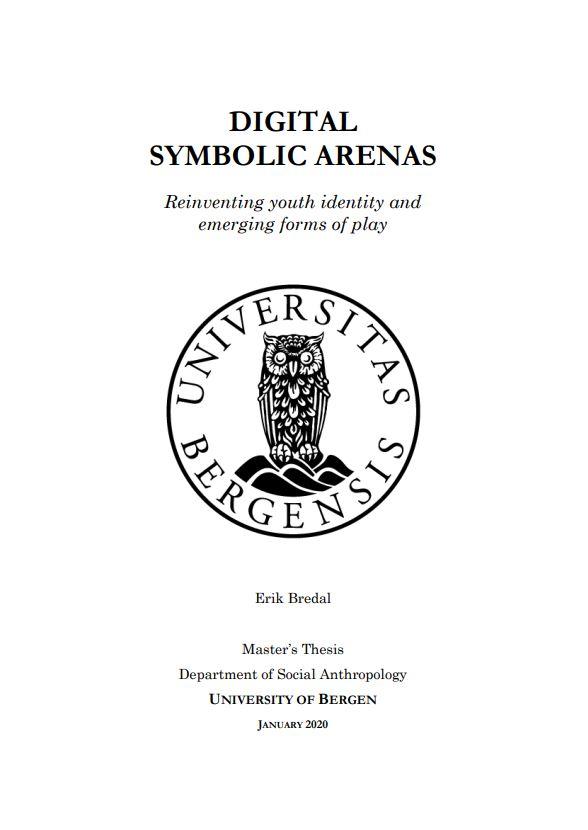Digital symbolic arenas. Reinventing youth identity and emerging forms of play
Main content
Master's thesis submitted at Department of Social Anthropology, spring 2020.
By: Erik Bredal
Supervisor: Professor Andrew Lattas
This thesis will ethnographically analyze the interrelationships between gender, class, and subcultural styles using different video gaming groups primarily located in Bergen, Norway. I will discuss the structures of the groups and the video-game organizations that they participate in so as to examine how the games fit in with the players’ wider social and cultural life. The digital gaming scene provides a new arena for the articulation and reinvention of youth identity in its various contemporary forms. Alongside the game itself other things are being played out, such as cultural-social experimentations in social relations, forms of communication, and symbolic iconography. I unpack the interplay between users and technology by studying how game design works through its ability to organize aesthetics, narratives, and reward structures within virtual worlds. The genre preferences and gaming habits of different individuals are analyzed so as to examine the varying degrees of devotion to a game and indeed sometimes addiction to it. The increased accessibility of digital games has transformed the sociocultural context surrounding gaming activities making it part of new forms of mass consumption. New marketing strategies and ways of generating revenue are emerging, most prominently often employing chance-based game rewards that sometimes obscure the line between gaming and gambling. Due to increased consumer possession of technological devices, such as personal computers, gaming systems, and smartphones, the gaming market has become highly lucrative, for advertisers, those selling goods and for game developers. The later rely increasingly not on large single initial purchases but a continual stream of seemingly small insignificant purchases that often promise participation in the chance to win something big and in doing so further blurring the lines between gaming and gambling.
